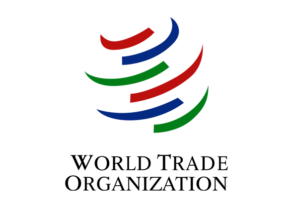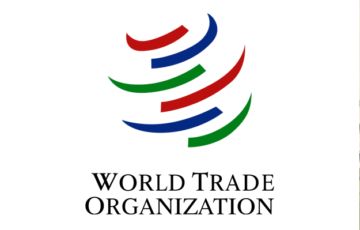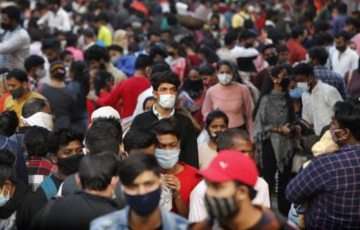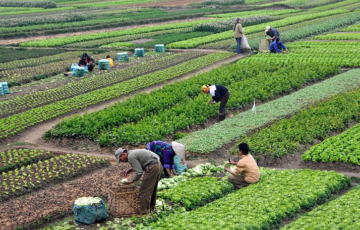INTERNATIONAL FINANCIAL INSTITUTIONS
Asian Development Bank (ADB)
Establishment and Headquarters
- Founded on December 19, 1966, and headquartered in Manila, Philippines.
- Multilateral development bank promoting social development, sustainable economic growth, and regional integration in Asia and the Pacific.
Membership and Leadership
- A total of 68 member countries, including 49 from Asia-Pacific and non-regional developed countries.
- Japan, the US, China, India, and Australia hold the largest shares.
- Current President: Masatsugu Asakawa (assumed office in 2020).
Purpose and Objectives
- Aim: Eradicate poverty and foster inclusivity, prosperity, resilience, and sustainability in the Asia-Pacific region.
Features
- Ownership shares: Japan (15.66%), US (15.56%), China (6.47%), India (6.35%), and Australia (5.81%).
- Invests in loans, grants, and information sharing in various sectors like infrastructure, education, healthcare, public administration, climate change, and financial sector development.
Focusing Areas
- Environmental Sustainability: Disaster risk management, climate change initiatives.
- Financial Sector Development: Providing loans, investments, bonds.
- Infrastructure Enhancement: Transport, communications, energy, water supply.
Organizational Structure
- Board of Governors: Highest policy-making body, composed of members from each state, elects a 12-member Board of Directors.
- Board of Directors: 8 members from Asia-Pacific, 4 from non-regional members.
- The President, elected by the Board of Governors, serves as the Chairperson of the Board of Directors for a 5-year term.
ADB and India Development
- ADB approved a $1.5 billion loan to India for COVID-19 response under CARES.
- Issued 20 years of Masala Bonds worth Rs. 850 crores on the BSE exchange.
- Signed a $300 million loan with the Government of India (GOI) for rural connectivity and economic boost in Maharashtra.
- Signed a $112 million loan for water supply infrastructure and strengthening Urban Local Bodies (ULBs) in Jharkhand.
- Appointed Election Commissioner Ashok Lavasa as Vice-president for private-sector operations and public-private partnerships.
Governance Report
- ADB released a report on Governance, highlighting four key aspects of good governance:
| Principle | Description |
| Accountability | Officials in government must be accountable for their actions and responsibilities. This is achieved through enhancing government capacities via public sector management, public finance management, and reforms. |
| Participation | The government should encourage better implementation of programs and projects. This involves participatory development processes through decentralization, collaboration with NGOs, and public-private partnership models. |
| Predictability | Laws and policies should regulate and ensure fair functioning. Stable frameworks for public-private development contribute to predictability. |
| Transparency | Information should be made available to the general public, and rules should be easily understood. Timely availability and easy access to information help save time and prevent corruption. |
Organization for Economic Co-operation and Development (OECD)
- The OECD, initially established in 1961, originated from the Organization for European Economic Co-operation (OEEC), formed in 1948 under the Marshall Plan for European reconstruction. With the Treaty of Rome in 1957, the idea to reform OEEC emerged, leading to its renaming as the OECD. From 20 founding members, it has expanded to 38 member countries, with India not yet being a member.
Objectives
- Economic Improvement: The OECD aims to enhance the world economy and collaborate with countries to resolve trade issues.
- Sustainability: It works towards sustainable economies, considering environmental impacts on economic and social development.
- Equality and Prosperity: Formulation of policies to promote equality, prosperity, and overall well-being.
- Market Confidence: Boosting confidence in markets to ensure their efficient functioning.
- Development Assistance: Advising and collaborating with nations to foster economic development.
Responsibilities
- Economic Monitoring: The OECD analyzes global economies to ensure financial stability, combat poverty, and maintain global economic stability.
- Performance Reviews: Conducts performance reviews of member states and provides advice for improvement.
- Tax Reforms: Encourages tax reforms among G-20 nations and monitors tax haven countries.
- Anti-Corruption Efforts: Works towards eradicating corruption and financial crimes globally.
Basic Functions
- Collaboration Platform: Brings together member states, policymakers, and citizens to address global issues.
- Policy Formulation: Develops policies aimed at improving economic outcomes, creating jobs, and ensuring sustainable development.
- Data Analysis and Sharing: Publishes reports on global economic outlook, serves as a hub for knowledge and data analysis for informed policymaking.
Organization Structure
- OECD Council: The decision-making body comprised of Ambassadors from member states, chaired by the Secretary-General, discusses essential organization work and budget.
- Committees and Groups: Operates through various committees, expert groups, and institutions to review policies and analyze data.
- Secretariat: Led by the Secretary-General, responsible for data collection, analysis, and policy support.
OECD Reports
- Going for Growth: Compares countries based on national performance.
- OECD Outlook: Provides guidance on implementing new policies.
- OECD Economic Outlook: Offers economic forecasts for both member and non-member countries.
Significance
- Assistance to Countries: Provides assistance to Asian and European countries in implementing economic reforms.
- Social Policy Analysis: Analyzes the effects of social policies and fosters growth prospects while considering environmental issues.
India and OECD
- Collaboration Opportunities: Collaboration with OECD offers opportunities for Indian policymakers to utilize expertise and technology for governance and economic policy.
- Participation in Committees: India participates in various OECD committees and forums, contributing to transparency, energy, and education initiatives.
- Program Participation: India has participated in programs like PISA and is involved in initiatives like the Global Forum on Transparency and Exchange of Information for Tax Purposes.
BRICS
- BRICS is an acronym representing the group of five major emerging economies: Brazil, Russia, India, China, and South Africa. Initially formed as BRIC in 2006 by Brazil, Russia, India, and China, South Africa was later invited to join in 2010. Collectively, these nations represent a significant portion of the world’s landmass, population, and GDP. BRICS is renowned for its influence on regional affairs and its efforts towards reforming the global investment market and promoting infrastructure initiatives.
Key Summits and Initiatives
14th Summit 2022
- Addressed the Russia-Ukraine conflict and advocated for diplomatic solutions.
- Supported UN agencies in delivering humanitarian aid with neutrality.
- Discussed the crisis in Taliban-led Afghanistan and emphasized dialogue for inclusive political structures.
- Emphasized strengthening anti-corruption mechanisms and promoting consumer safety in e-commerce.
Objectives of BRICS
- Increase economic and political stability.
- Broaden partnership among member countries for fair growth prospects.
- Give equal importance to member ideas for progress.
- Solve global financial problems and maintain diplomatic relations.
- Enhance economic cooperation through trade and investment.
Latest Updates
- 14th Summit (2022) focused on fostering quality partnerships and condemned terrorism.
- China raised concerns over growing military partnerships compromising security.
UPSC PREVIOUS YEAR QUESTION (PRELIMS)
1. With reference to the Asian Development Bank (ADB), consider the following statements:
1. ADB has 68 member nations.
2. The headquarters of ADB is in Tokyo.
3. Japan is one of the largest shareholders of the bank.
4. ADB does not have any members from outside Asia.
Which of the statements given above is/are correct?
(a) 2 only
(b) 1 and 3 only
(c) 2, 3 and 4 only
(d) 1, 2, 3 and 4
2. The ‘Fortaleza Declaration’, recently in the news, is related to the affairs of_____ (2015)
(a) ASEAN
(b) BRICS
(c) OECD
(d) WTO









